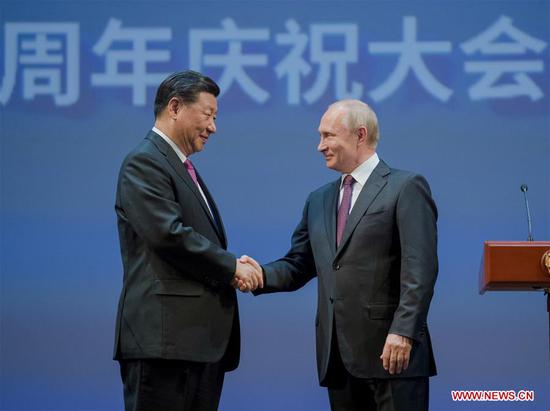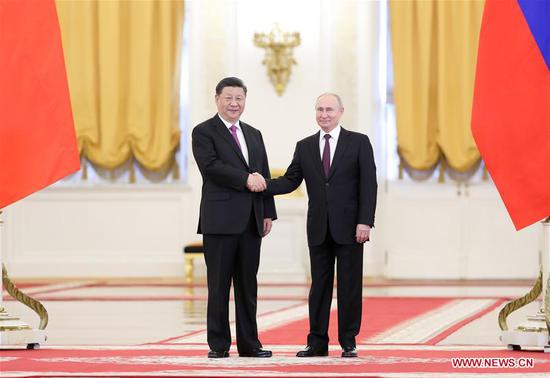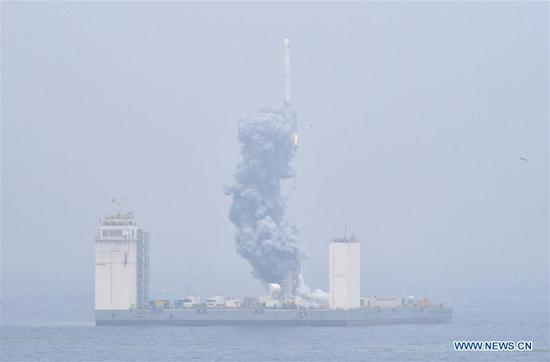The new prime minister still faces a difficult political balancing act
As departures go, Theresa May's exit as Conservative Party leader on Friday was a painful one. US President Donald Trump's state visit in her last week meant May was a bit player in her own final scene.
The invitation to Trump was issued in January 2017, which feels like a lifetime ago. The headlines then anointed May as new Iron Lady, taking the Brexit fight to Brussels and likely winning.
Instead, she left having made no progress whatsoever on the Brexit issue internationally, nationally or even within her own Conservative Party, which is now in the grip of a Brexit fever.
May's last day as Conservative leader dawned with the news that the Brexit Party, had pushed the Conservatives into third place in a by-election the previous night. That sums up how the political debate has been steered on May's watch-and hints where it might continue under her successor.
From the current field of 11 candidates, the parliamentary Conservative Party will choose two, who will then go forward to a vote by grassroots members.
Almost all the contenders are strong Brexit enthusiasts, and with the Brexit Party an ever more confident squatter on the Conservatives' political patch, it might be that the only way to win back votes is to take on the usurper at its own game, and to adopt the same direct approach.
With Brexit having been delayed twice on May's watch, her successor is currently scheduled to oversee the exit on Oct 31. Amid warnings that a third delay could kill Brexit, or even the Conservative Party, altogether, few of the contenders would contemplate another postponement, deal or no deal.
The Brexit referendum brought May to power when it unseated predecessor David Cameron. The Brexit impasse pushed her from the throne and, before her successor is even known, the Brexit Party has a hand on the Conservative steering wheel.
It is impossible to predict accurately what will happen next to the Conservative Party, or under whose stewardship, but a further drift to the right toward the US sphere of influence, looks likely. So how will this affect Sino-British relations?
May and Cameron both worked to strengthen bonds between the China and the UK. James Sassoon, chairman of the Sino-British trade association, told China Daily that maintaining these ties would be a priority for the new leader.
"As the UK's third-largest trading partner, China will continue to be very important for the UK's next prime minister," he said.
"The China Britain Business Council and our members are focused on promoting the opportunities, telling the story of growth and continuing our long and successful trade relationship with China. China remains a key focus for British business and any UK leader will understand the opportunities arising from policies such as the Belt and Road Initiative, and the Greater Bay Area."
For centuries, he added, Britain had been the most open global economy and it was in the interests of Britain and China for this to remain the case. "Close ties benefit both countries-they strengthen the case for economic reform in China while promoting British expertise, creativity and brands," he said, citing the large number of Chinese students in the UK as proof of the healthy relationship.
Christopher Bovis, professor of international business law at the University of Hull, agreed that the longevity of Sino-British ties would help them weather any political storms, such as the row over the involvement of Huawei in British telecommunications networks, but warned against sudden changes of policy direction.
"The US administration is negatively predisposed toward Huawei resulting in a number of high-profile incidents, … which aim to make it difficult or impossible for the company to progress with its plans to roll out 5G packages for telecommunications," he said.
"A new UK government and prime minister should not let this affect the very successful and progressive Sino-UK relations, particularly in the outward investment front.
"Relations between the UK and China are deeply rooted for many decades and reflect a model which has unparalleled application with other international partners and countries, especially in the European Union and the European continent.
"However (Chinese investment) is rather risk-adverse. It is based on the assumption of long-term sustainable returns which also have multiple dimensions."


















































